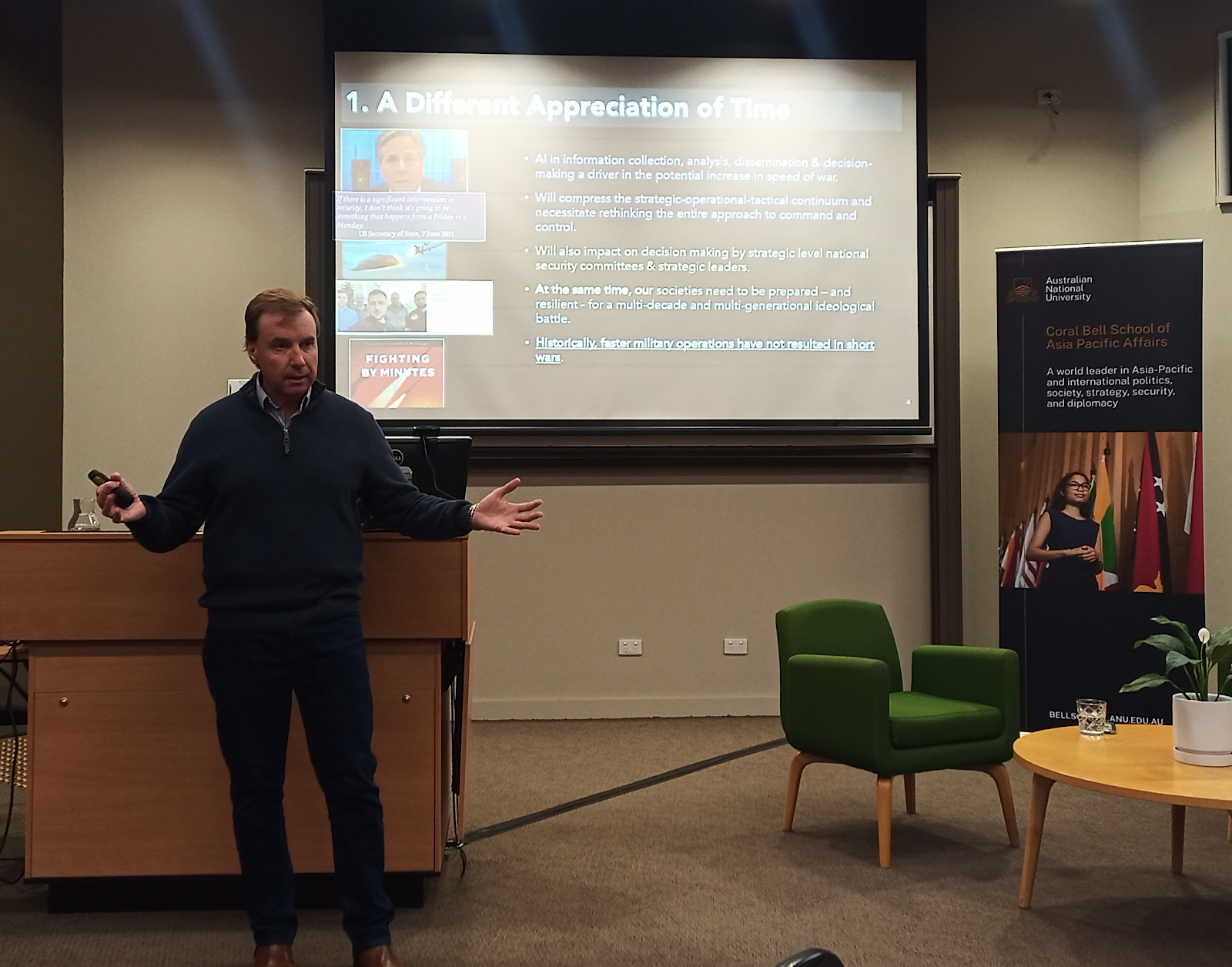 |
| Mick Ryan |
Mick went on to talk about integrating political, and military objectives, and operations. He asked for new ideas for Australian defence. He pointed out that some of Russia's new ideas have "not worked out that well". He contrasted this with Chinese new thinking, and suggested Australia needs do this. He suggested organizing the defence force differently, as current battalions are based on old Russian legions.
I suggest one thing the Australian military can do is make better use of universities, as industry are. Each semester, ANU has about 200 students working on group computer projects and 50 interns. Some of these people work on defence and security projects, mostly in companies contracted to the Australian Government. Examples are testing new radar for missile defence (an Australian system Ukraine has asked for), and testing cyber security of software for government. Universities across Australia are working on AI, cyber security, drones, and all that stuff.
In answer to a question about the potential for war over Taiwan, Mick Ryan suggested drone submarines would be more useful than nuclear powered ones. Another interesting point was what is the legal liability of civilians who help with defence online. Some seem reasonably clear to me: if you report a military aircraft going over, you have become a target. A great question from a public servant in the audience was what does a mass AI western influence operation look like? The first part of the answer surprised me: NATO (as a political influence organisation). The second part was to teach children that not everything on the Internet is true.
No comments:
Post a Comment